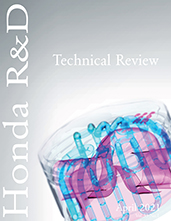Training / Education
Methodology of Interactive Design and Study Using Driving Simulator
This course is offered in China only and presented in Mandarin Chinese. Driving simulator is a key component of automotive interactive design, which can provide objective data to support both the effectiveness of design and user experience. On the other hand, driving simulator and the design of its experiments are major challenges, as improper experiment design will lead to consequences such as failure in identifying designing errors of the interactive design itself.




